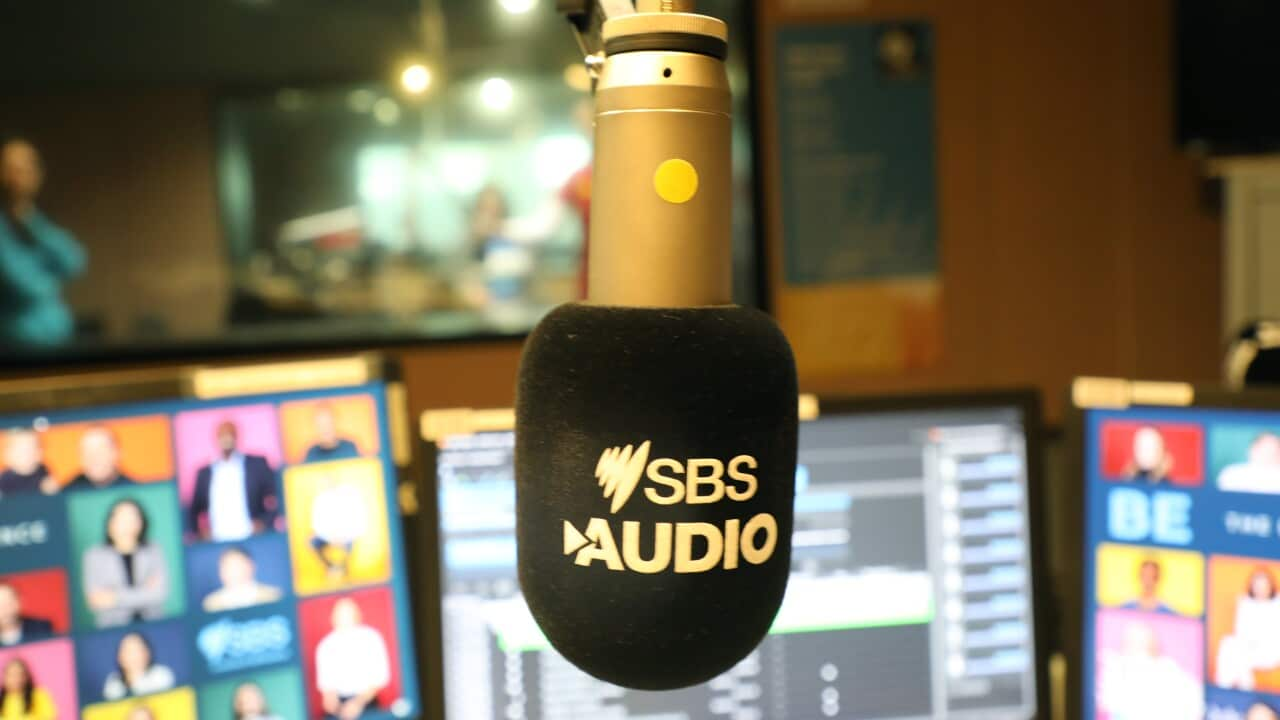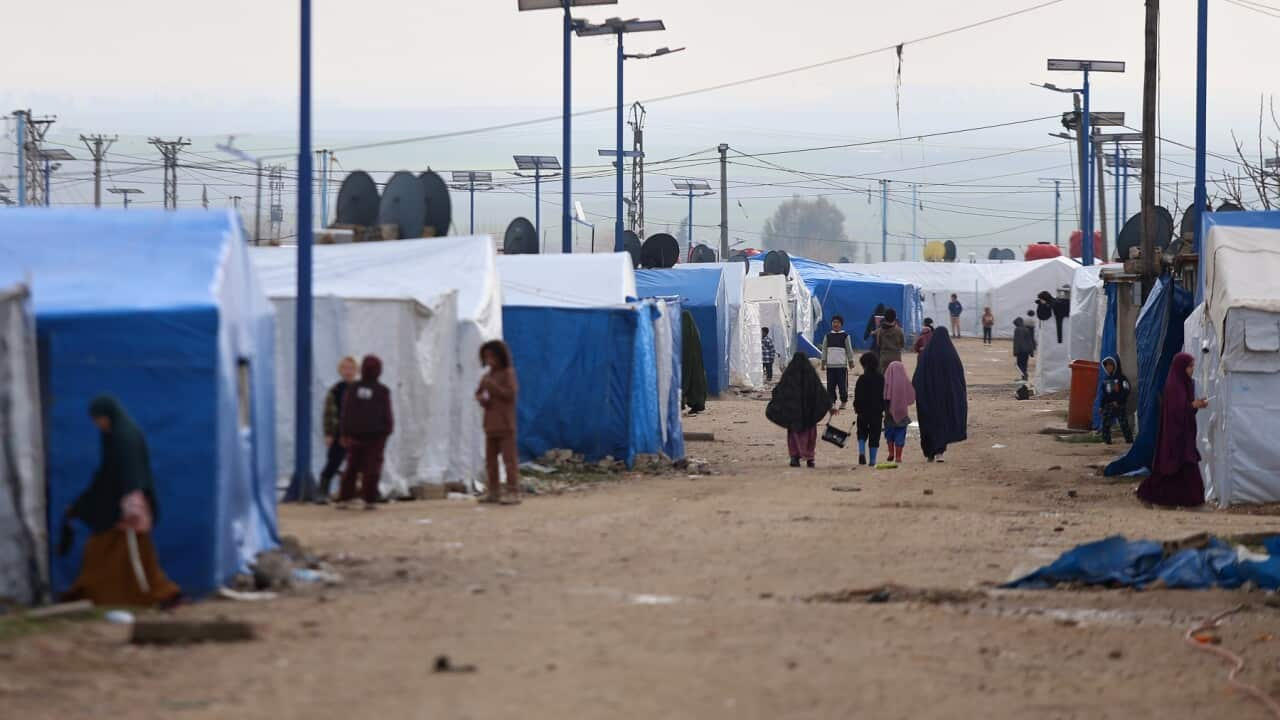Talagang isang malaking hamon para sa isang bagong salta o bagong dating dito sa Australia kapag hindi ka makapagsalita at makaintindi ng wikang Ingles. Kaya bilang tugon, inilunsad ng gobyerno ng Australya ang Adult Migrant English Program o AMEP.
Bukas ito para sa mga permanent resident visa holders na refugees o kaya eligible na temporary resident ang pwedeng makabenepisyo sa libreng pagtuturo ng wikang Ingles.

Sinimulan na ito noong buwan ng April 2021, kaya maraming migrante ang pwedeng makakuha libreng English lesson na ito, hanggang sa makuha mo ang mataas na lebel kung saan marunong at nakakaintindi ka na ng wikang Ingles.
Ang TAFE Queensland ay ang state provider ng AMEP. Sabi ng Executive Director na si Scott Bray ang maganda sa programa ngayon ay tinanggal na ang 510 hour tuition cap, ibig sabihin di na limitado ng oras sa pag-aaral ng English.
“The Government late last year announced a number of really major reforms for the AMEP which came into effect on the 19th of April. People who participated in AMEP had 510 hours of free English language tuitions, but with the changes, that cap has now been removed, so people can stay in the AMEP for as long as they need to obtain a good level of English language proficiency so that they can settle in Australia," kwento ni Bray.

Dagdag pa ni Bray, marami ding pagbabago ang ginagawa ng gobyerno para maging madali ang pag-aaral ng mga bagong dating dito sa bansa.
“The Government has removed the time frame of participation, so prior to the 19th of April, people had six months to register for the program, 12 months to commence the program, and five years to complete the AMEP. But now under the changes, if people were in Australia on the 1 October or prior, they are not subjective to those time frames, dagdag ni Bray.
Sa ginawang survey na ginawa na may tinawag na ‘The Characteristics of Recent Migrants’ napag-alaman na 1.9 milyong migrants at may visa na temporary resident ay nakarating sa Australia sa pagitan ng 2009 at 2019. At 68 porsyento dito ay nagsimulang magtrabaho Nobyerno taong 2019, pero 25 percent sa kanila ay nagsabing malaking hadlang sa pagkuha nila ng unang trabaho ay ang kakulangan nila ng alam sa wikang English.
Kaya dagdag ni Bray, laking tulong ang AMEP para mas mapabuti sa wikang Inglesang mga bagong migrante sa bansa. Ang kailangan lang ay mag-sign up sa programang AMEP, na sa ngayon ay may tatlong daang provider na sa buong Australya.
That’s in recognition to the fact that there are lots of people in the community who don’t have a good level of English, and that’s sort of holding them back in their settlement or holding them back from gaining employment but with the removal of those timeframes they can now re-join the program.
Madali lang ang pag-sign up sa programa, kailangan lang tawagan ang local provider sa inyong mga lugar, o kaya mag fill out ng registration form na makikita sa TAFE website sa inyong estado o teritoryo.
Si Tayyaba Bushra na galing sa bansang Pakistan, aminadong laking tulong ng AMEP.
Hunyo 2020 lang dumating si Busha , at buwan ng Oktubre nang magdesisyon mag-aral a pamamagitan ng AMEP sa TAFE Queensland.

“I was not confident enough to talk to anybody here before starting this program. And most of the time, I would feel embarrassed because I did not know how to talk with the people or is this thing acceptable in Australia or not, but now, I’m confident enough to talk to the migrants but also with a native speaker because now I know many more things about Australia, " sabi ni Bushra.
Paunawa ni Bray, ang pag-aaral ng wikang Ingles sa pamamagitan ng AMEP ay pwedeng gawin ayon sa oras ng mag-aaral pwede ding gawin sa pamamagitan ng distance learning o online para sa di kayang mag face-to-face program.
“We also run weekend classes and night classes because a lot of our students have caring commitments through the day or work, and for them, it’s easier to attend the class at night or at the weekend.”
Ang kagandahan pa sa ginawa ng gobyerno, ay kung pumili ka ng face-to-face na klase, sa AMEP at may maliliit na mga anak, pwede itong ipasok sa childcare ng libre na ayon sa oras ng iyong klase.
“Free childcare is offered to any AMEP student who has under school-aged children, and that’s a really important incentive because it actually helps people to be able to come to class knowing that we book their children into childcare, and the payment for that childcare is made by the Department. So, it doesn’t actually cost the student anything at all," sabi ni Bray.
Maliban sa libreng pag-aaral ng wikang Ingles sa AMEP, pwede ding matutunan ng mga refugees ang Work Ready program, kung saan makakatulong ito sa kanilang paghahanap ng trabaho. Ang programang ito ay may kaakibat na 80 hours na work experience kasama ang isang local na employer.
“And what we also do is we will find a work experience placement for the students. So, if the student has a particular aspiration to work in, say aged care or childcare, we will arrange a two-week work experience placement for that student, and we support them throughout that work experience placement as well, so, Work Ready is a really popular program that is part of our delivery in the AMEP," dagdag ni Bray.
Kaya laking pasasalamat ni Bushra sa programang ito. Bukas din syang dagdagan ang kanyang kaalaman tungkol naman sa kultura dito sa Australya, na syang matatawag nyang bagong tahanan.
“Learning a new language, it’s a kind of lifelong activity, and with 510 hours, just a limited time, it’s not possible, you know. I have improved very much, but I still I’m not familiar with the ways Aussies speak, specific expressions they use in different workplaces or when it comes to specific events or festivals. So, by extending the number of hours, we can get more chances to learn these things," sabi ni Bushra.
Para sa karagdagang impormasyon ng AMEP o Adult Migrant English Program, bisitahin ang Department of Home Affairs website o kaya i-contact ang pinakamalapit na TAFE.
Ang ulat na ito ay binuo ni Josipa Kosanovic na isinalin sa ating wika.
BASAHIN/PAKINGGAN DIN





